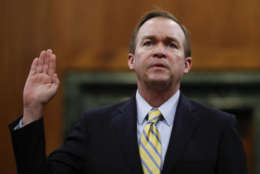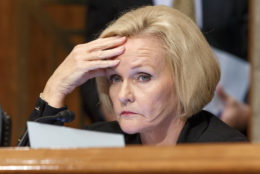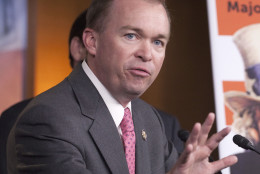Hubbard Radio Washington DC, LLC. All rights reserved. This website is not intended for users located within the European Economic Area.
On Air: Federal News Network
Robert Shea
-
The suddenness of the partial government shutdown forced agencies and contractors to scramble over the last week to figure out who is working and who isn’t.
December 24, 2018 -
The Defense Department gets a pass in the Trump administration's government reorganization.
June 22, 2018 -
After a year and a half of study, the White House rolled out what it says would be the most ambitious restructuring in the federal government’s history.
June 22, 2018 -
The overall plan for fiscal 2019 is coming in to focus, and we know a lot more thanks to the budget request released this month.
February 26, 2018 -
Communication and transparency during the government reorganization process is going well for some, and not for others.
September 13, 2017 -
The new report includes 22 recommendations, including the creation of a National Secure Data Service, and asking Congress to lift certain bans on data use and collection.
September 11, 2017 -
Former agency leaders urge collaboration, perseverance as government reorganization heads into fiscal 2018.
August 16, 2017 -
Though federal management experts like much of what they see in the Office of Management and Budget's reorganization and restructuring plan, they say the White House needs to craft a more positive message to sell their ideas to the federal workforce.
April 19, 2017 -
Lead time and planning efforts for an executive order can vary based on the topic, complexity and urgency, but former Bush and Obama administration officials say inter-agency collaboration is key. But some lawmakers have several questions for the Trump administration about the roll-out of some recent executive orders.
February 06, 2017 -
President-elect Donald Trump nominated Rep. Mick Mulvaney (R-S.C.) to be the director of the Office of Management and Budget.
December 19, 2016 -
President-elect Donald Trump must figure out what he'll do about an array of domestic and international problems. Robert Shea, former White House staff member and a fellow at the National Academy of Public Administration, joins Federal Drive with Tom Temin on how Trump will deal with the 2 million-strong federal workforce and policy at dozens of agencies.
November 09, 2016 -
NAPA and Heritage release papers promoting evidence-based policymaking while the Reason Foundation highlights the lack of public-private competition under Circular A-76.
October 11, 2016 -
For incoming politicals of the new administration, building a good working relationship with their inspector general is an opportunity to avoid early pitfalls in getting acclimated and improve the effectiveness of their organizations over the coming years.
September 08, 2016 -
From cybersecurity to clean transportation to curing cancer, the 2017 budget request from the Obama Administration is ambitious. The non-Defense portion of the discretionary budget would rise to nearly $600 billion. For one view of what the budget is saying and what it might mean to federal agencies, Federal Drive with Tom Temin turned to Robert Shea, principal at Grant Thornton and former Office of Management and Budget official during the Bush administration.
February 11, 2016














